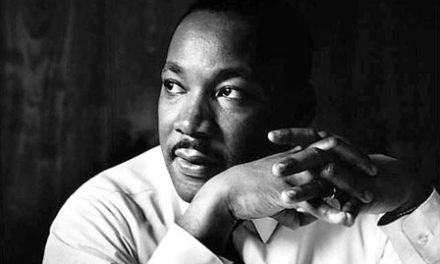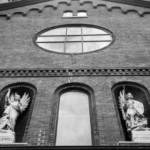This is the second week of Advent. We come to Zechariah’s Song, The Benedictus, found in Luke 1:67-79.
Luke 1:18 – Zechariah asked the angel, “How can I be sure of this? I am an old man and my wife is well along in years.”
Luke 1:19-20 – The angel said to him, “I am Gabriel. I stand in the presence of God, and I have been sent to speak to you and to tell you this good news. 20 And now you will be silent and not able to speak until the day this happens, because you did not believe my words, which will come true at their appointed time.”
While this sounds tragic and severe, purgation requires us to turn away from our sin and sinful habits. When we move out of Awakening and into Purgation, we move into the life of discipleship. We find new loves and likes. We now devour Scripture. We eat up books, sermons, teachings, lectures on the Christian life. We get into discussions, debates and outright arguments on just about everything… which translation of the Bible is best, New American Standard or New Revised Standard. Which local church is the “the purest.” Why the Roman Catholics are wrong and Evangelicals are right. Why Calvinism is THE system of doctrine.
We gather information. Our soul drills down deep spiritual roots. We journal and have a quiet time, a time of surrender each day. We pray rich petitions. We sing and worship with abandonment. We buy Christian music CDs/downloads. We judge other Christians – who’s wrong and who’s right. To sum up, we are discovering what we believe and who we belong to. We are in love with Jesus and all that Jesus stands for. We are in love with the Christian life. In my little world, this is when I spelled g-d “God.” I knew all about God. I fled the world and worldliness. I was in the world but not of the world.
In my early days of the Christian life, I went to a meeting nearly every night. I had a quiet time each day. I read volumes of books on Apologetics and Doctrine. I loved it. I became a Calvinist because it was so clear, and made so much sense: We are totally depraved, unable to save ourselves; God is sovereign so he must know everything, so he knew me, he predestined me for salvation. Since God is so efficient, no one who isn’t elect will be saved. Like science, this doctrine is so very clear. In Purgation G-d is not a mystery to be pondered, so much as he is a puzzle to be solved.
In Janet Hagberg and Robert Guelich’s helpful book, The Critical Journey, they divide Purgation into two distinct stages: a) the Life of Discipleship and b) the Productive Life. The Productive Life focuses on our doing-ness. We Do. We do everything. We realize G-d loves us, and love G-d back. So we use our g-d-given talents to perform for our Lord.
In my journey I learned to play guitar. I led worship. I studied and taught and preached. I developed leaders, and wrote up scores of Bible Studies and lessons. I was useful. Like Zechariah, I learned how to be “a priest” in the temple of Belief. Also, everyone thought I was useful and wonderful.
Zechariah had spent his whole adult life (most likely) learning his craft as priest. He was probably an expert in the Law (Torah). Unfortunately he knew too much. He knew the hopes and dreams of the nation had not come to fulfillment. He knew the Hebrews had been in slavery for over 600 years. He’d learned to not expect another Moses.
Perhaps what Zechariah needed was a thunk in the head – a thunk to help him think. He had eyes but could no longer see, ears but no longer hear. I think when G-d wants us to have a thunk in the head it isn’t always some tragic pain like hip surgery (but I wouldn’t rule it out). No, G-d sends us into silence.
The solitude of inner silence. This was Zechariah’s big thunk. Hagberg and Guelich call it “The Wall.” It is actually a part of what they call the Inward Stage, which follows the stages of Discipleship and Productivity. Imagine instantly you are deaf and you can’t even speak! For nine months he is alone with his thoughts and G-d. The Inward Stage with it’s unavoidable Wall is time of unprecedented upheaval. You might still believe in God, but this new g-d is not like your old familiar God. If the stage goes well, you get “a new g-d” and learn to accept that you don’t know anything about God, but you now truly love the unknown G-d. Best yet, you know G-d is with you. At this point you no longer know your direction in life – and it’s okay, but you certainly know who is with you. It is the Lord. What a rich time of prayer and turmoil this is. We know that Zechariah comes out of this inner sanctuary humble and submitted to G-d in a new fresh way.
He asked for a writing tablet, and to everyone’s astonishment he wrote, “His name is John.”64 Immediately his mouth was opened and his tongue set free, and he began to speak, praising God.
I bet Zechariah never doubted G-d again for the rest of his life. He was purged clean of doubt.
Do we pray for this kind of purging for ourselves? Well, do we have a choice?
By the way, if my spelling of the name of God as “g-d” or “G-d” drives you crazy, then you are definitely in the Discipleship Stage!









